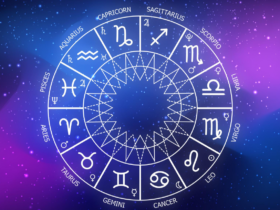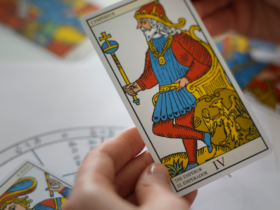In a world where decisions are often driven by logic and data, following your heart can seem like a romantic notion. However, it can be a complex task to determine when to trust your heart’s guidance, especially as you continue to grow and evolve. Whether you are considering a career change, starting a new business venture, or taking a relationship to the next level, relying solely on dreams and hopes may not be enough to make wise choices. It is essential to strike a balance between your emotions and rational thinking.
In this article, we will explore five signs that indicate it is time to follow your heart when making decisions and choices. By recognizing these signs, you can gain a deeper understanding of when to trust your heart’s guidance and when to consider other factors. Remember, following your heart does not mean disregarding reason or logic entirely, but rather integrating them with your inner desires and values.
Authentic Desire
Moving beyond comfort: One of the crucial signs that you should follow your heart is when your decision aligns with what you truly want, rather than what feels comfortable or expected. It is easy to fall into repetitive patterns, staying within the confines of familiarity and safety. However, true growth and fulfillment often lie outside our comfort zones.
Consider situations where you find yourself in long-term relationships, whether romantic or friendships, that may no longer serve your growth or align with your values. These relationships may provide a sense of connection or fill a yearning for companionship, but if they hinder your personal development or lack mutual support, it may be time to reassess their place in your life.
Similarly, in your professional life, you may find yourself working on projects that no longer challenge or inspire you. While they offer stability and predictability, they may not align with your values, skills, or aspirations. Choosing to break free from these patterns can open doors to new opportunities and bring greater meaning, progress, and satisfaction to your work.
Related: The Tower and the Star: Transformation and Hope in the Major Arcana
By recognizing when you are simply seeking comfort and familiarity, you can challenge yourself to embrace change and pursue what truly ignites your passion and aligns with your authentic desires.
Speak to a live horoscope expert. Find clarity, connection and a path forward.
CLICK HERE AND START YOUR READING!
Inner Cues
Listening to your intuition and body: Blaise Pascal’s timeless advice to “know thyself” holds significant value when it comes to following your heart. Self-awareness plays a crucial role in distinguishing when to trust your heart’s guidance and when to consider alternative perspectives.
Your body often acts as a reliable indicator of your true feelings and desires. Pay attention to physical sensations, such as headaches, back pain, muscle tension, or joint pain. These discomforts may arise when you are engaged in or considering a situation that does not resonate with your heart’s desires. Conversely, when you find your breath flowing easily and deeply, and your sleep patterns are restful, it may be an indication that your heart is aligned with your path.
Intuition, that gut feeling or instinct, is another powerful tool for decision-making. It is a culmination of your experiences, stored patterns, and first impressions. While it may seem instantaneous, it is grounded in deep knowledge and wisdom. Trusting your intuition allows you to tap into a wealth of accumulated insights that your conscious mind may not readily acknowledge.
Interestingly, your gut, often referred to as the “second brain,” contains a significant number of neurotransmitters. It is another source of wisdom that complements your intuition. Although its guidance may seem to come from nowhere, it adds to the pool of knowledge you possess. Pay attention to the sensations and cues from your gut, as they can provide valuable insights into the choices you face.
Related: Astrology and Universal Laws: Aligning with Cosmic Principles for a Balanced Life
Engaging in reflective conversations can further enhance your understanding of whether to follow your heart. However, it is important to avoid repetitive conversations that simply reinforce your existing thoughts. Instead, take the time to clarify your ideas and thoughts by jotting down the main themes that emerge. Then, seek input from a few individuals whose opinions you value. Ask open-ended questions that encourage their honest perspectives. As you listen to their responses, pay attention to your emotions and feelings. They can serve as a guide, supporting good choices and exposing questionable ones.
By nurturing self-awareness and embracing the cues from your body, intuition, and reflective conversations, you can gain clarity on when to trust your heart’s guidance in decision-making.
Positive Emotions
Moving beyond fear and impatience: When considering whether to follow your heart, it is essential to evaluate the emotional undercurrents surrounding your choices. Fear and impatience are two emotions that often cloud judgment and hinder effective decision-making.
Fear has a powerful ability to distort our perception and lead us astray from our true desires. To gain clarity on fear’s presence in your decision-making process, take a moment to jot down specific keywords and phrases that arise when you ask yourself, “What am I afraid of?”. Explore the origins of these fears, delving into past experiences that may have shaped them. By understanding the root causes of your fears, you can navigate through them and make choices that are not driven by irrational anxieties.
Impatience, on the other hand, is a distraction that can impede sound decision-making. It often stems from feelings of boredom, neediness, or anxiety. When impatience arises, it is crucial to avoid rushing into action. Take the time to clarify the underlying motives behind your urge to act immediately. By exploring the driving forces behind impatience, you can discern whether they align with your heart’s true desires or stem from external pressures or anxieties.
Related: Astrological Life Lessons: What Each Zodiac Sign Can Teach Us
Waiting and allowing yourself to sleep on decisions can be immensely beneficial. Taking a break from overthinking and giving yourself space can help clear your mind and provide a fresh perspective. Consider taking a short vacation or engaging in activities that bring you joy and relaxation. By temporarily shifting your focus away from the decision at hand, you create room for clarity to emerge. When you return to contemplate the decision, imagine yourself actually pursuing the path you have in mind. Pay attention to the emotions that arise. Do you feel a sense of freedom and satisfaction, or do you sense limitations? These emotional cues can offer valuable guidance as you navigate the decision-making process.
By transcending fear and impatience and allowing positive emotions to guide your choices, you can make decisions that are aligned with your heart’s true desires





















